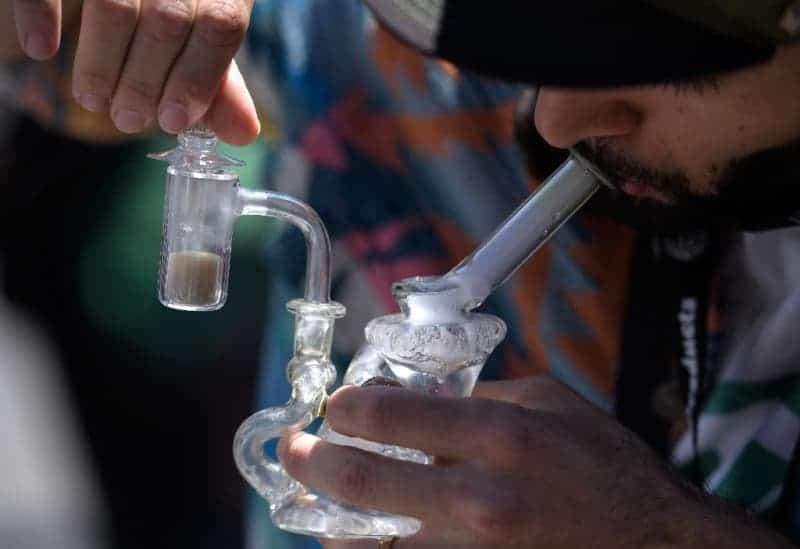AFP

Los Angeles (AFP) – As pot smokers prepare to light up for “4/20” — the annual counter-cultural celebration of cannabis held on April 20 — the United States' legalization experiment blazes ahead.
Here are five things to know about marijuana in America:
- Where is it legal? –
Eighteen of the 50 US states, plus the capital Washington, have so far legalized recreational weed use for adults.
Most states allow at least some medical use — ranging from oils with low levels of the active ingredient THC to near-legalization.
Just a few conservative states such as Idaho, Wyoming and Nebraska have held off.
Oddly, marijuana remains illegal under federal law — in fact, it is technically a “schedule one” controlled substance, on par with heroin.
So in theory, a cannabis user is still breaking the nation's laws.
But in practice, federal prosecutors do not pursue people or businesses that are complying with their state's marijuana laws, nor have they challenged those laws in court.
- Where could be next? –
While New Jersey has already legalized recreational weed, legal sales will only begin this Thursday.
Rhode Island, Delaware, Hawaii, Maryland, Louisiana and Oklahoma are the states considered most likely to allow cannabis use next.
But that could soon be moot, if efforts to decriminalize marijuana nationwide work out.
A Democrat-led bill to eliminate punishments for possessing or selling the drug was approved by House lawmakers this month.
It faces a sterner test in the Senate, where the Democratic majority is as thin as a rolling paper. It would also need President Joe Biden's signature.
How much is legal weed worth?
Legal weed is already big business — worth around $25 billion in the United States last year — and is only expected to grow faster.
Efforts are under way to clear financial red tape for legal cannabis operators, who often struggle to secure basic services such bank accounts, loans and even credit card machines at checkouts due to the sector's “grey zone” legal status.
States reported $3.7 billion in cannabis tax revenue from sales last year.
And the recent House bill projected that annual legal sales will pass $40 billion by 2025.
What about the illegal industry?
As big as the legal sector has grown, it is still dwarfed by illegal marijuana sales.
Illicit cannabis was estimated to be worth $65 billion in 2020 across the nation.
This is not just confined to states where weed remains illegal.
Even in California, the first US state to approve medical marijuana use back in 1996, as much as 80 percent of cannabis sales remains outside the law.
These range from loyal customers sticking with their original dealers — either from preference for the product, or lower prices thanks to the lack of taxes — to counterfeit operations that consumers may assume are legitimate.
Who supports it?
Overall, the US public is strongly behind legalization.
A Pew Research poll found last year that 91 percent of adults think marijuana should be legal, either medically, recreationally or both.
Roughly half of US adults last year told Gallup they had tried cannabis, up from one-third in 1999.
Legal cannabis companies have drawn celebrity funding or endorsements, from musicians Snoop Dogg and Wiz Khalifa to actor Seth Rogen and former boxing champ Mike Tyson.
Billionaire Elon Musk is also a fan, controversially lighting up a joint during a “Joe Rogan Experience” podcast livestream, and tweeting his outrage about prisoners who are still behind bars for the historical offence of selling weed.



